Exploring the Versatility of CNC Routers: Innovations in Crafting and Manufacturing
In the realm of modern manufacturing and craftsmanship, the CNC router stands out as a revolutionary tool that has transformed the way products are designed and created. This innovative machine, known for its exceptional precision and versatility, has made it possible for artisans and manufacturers alike to explore a wide range of materials, from wood and plastic to metals and composites. The advent of CNC routers has not only streamlined traditional woodworking and crafting processes but has also introduced new possibilities for intricate designs and complex shapes that were once thought unattainable. As we delve into the remarkable capabilities of CNC routers, we will uncover the various applications and innovations they have ushered into the fabricating world, highlighting their significance in enhancing productivity and creativity across diverse industries.
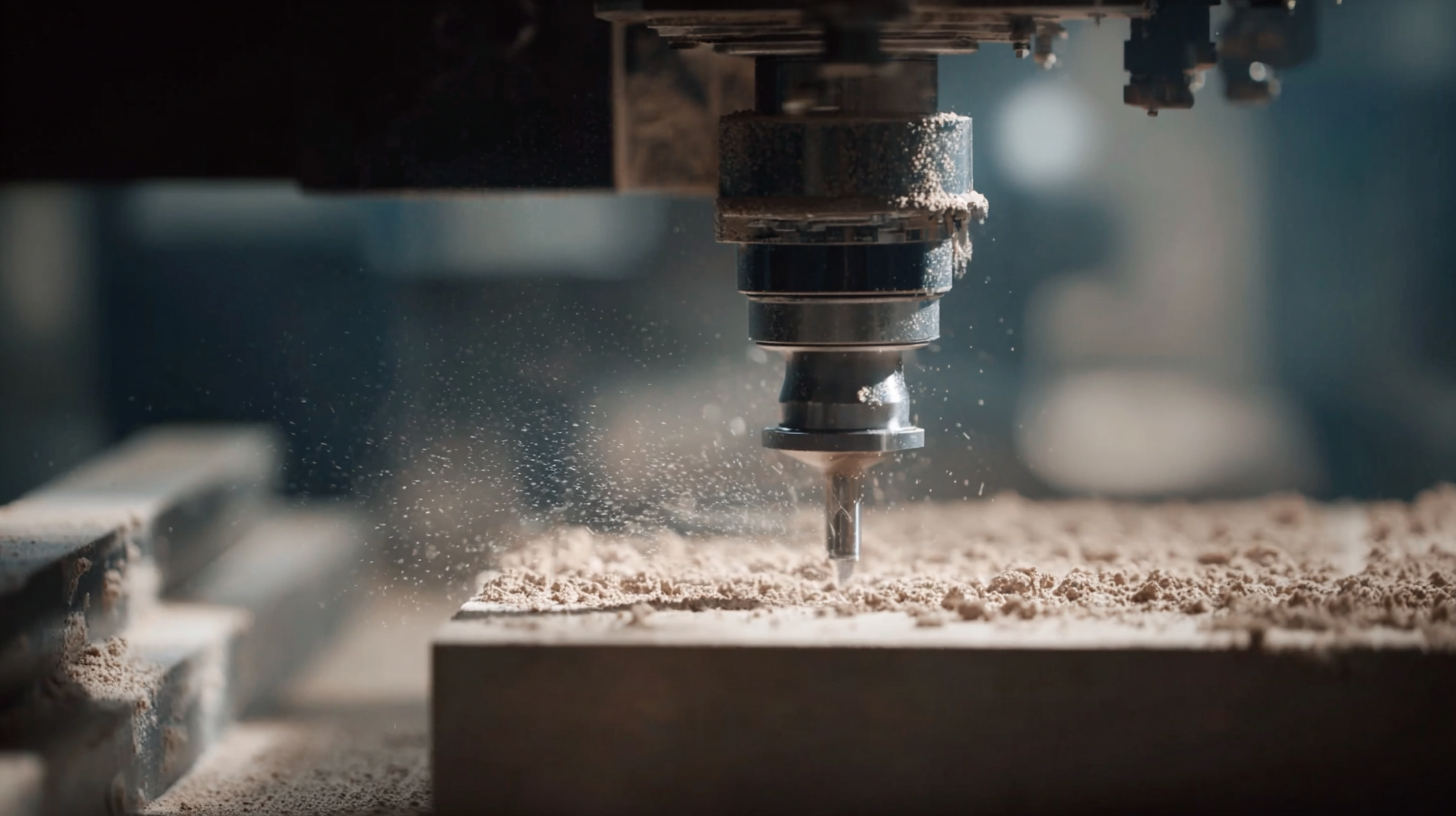
Innovative Applications of CNC Routers in Modern Crafting and Manufacturing
The versatility of CNC routers has dramatically transformed modern crafting and manufacturing, paving the way for innovative applications across various industries. With the global machine tool market projected to grow from $132.63 billion in 2025 to $229.46 billion by 2032, maintaining an impressive compound annual growth rate (CAGR) of 8.1%, it’s clear that these tools are becoming increasingly vital. Similarly, the CNC machining center market is expected to expand significantly, from an estimated $14.35 billion in 2025 to $21.69 billion by 2033, reflecting a robust growth rate of 5.7%. This growth speaks to the rising adoption of CNC technology in various sectors, including woodworking, aerospace, automotive, and even textiles.
CNC routers are not just limited to traditional woodwork; their capabilities extend to intricate designs in plastics, metals, and composites. These machines allow for precision crafting that was once unattainable with manual methods. For creators and manufacturers, this means enhanced productivity and the ability to realize complex designs effortlessly.
**Tips**: When considering investing in a CNC router, evaluate the specific materials you plan to work with, as certain routers excel in particular applications. Additionally, staying updated on software advancements can help leverage the full potential of CNC technology, ensuring your projects remain at the cutting edge of innovation.
The Impact of CNC Router Technology on Production Efficiency: Industry Statistics
CNC router technology has revolutionized various industries by enhancing production efficiency and accuracy. According to a recent industry report, companies that have adopted CNC routers saw an average production time reduction of 30%, leading to significant cost savings and increased output. Furthermore, these machines can operate continuously, allowing businesses to meet high demand without sacrificing quality or increasing labor costs. The precision offered by CNC routers also minimizes material waste, with some reports indicating a reduction in waste by as much as 20%, helping companies to maximize their profitability.
Tips: To maximize the benefits of CNC routers, consider regular maintenance and calibration to maintain precision levels. Investing in skilled operators can also enhance machine utilization and efficiency, ensuring that your production processes run smoothly. Additionally, exploring software solutions that integrate with CNC technology can streamline design workflows, further enhancing production capabilities.
In sectors like woodworking and metal fabrication, the use of CNC routers has led to a 25% increase in competitive edge among manufacturers who leverage this technology. With the ability to create complex designs with speed and accuracy, CNC routers enable businesses to innovate while keeping pace with market demands. Integrating CNC routing into your production processes not only boosts efficiency but also allows for customizations that can attract a broader customer base.
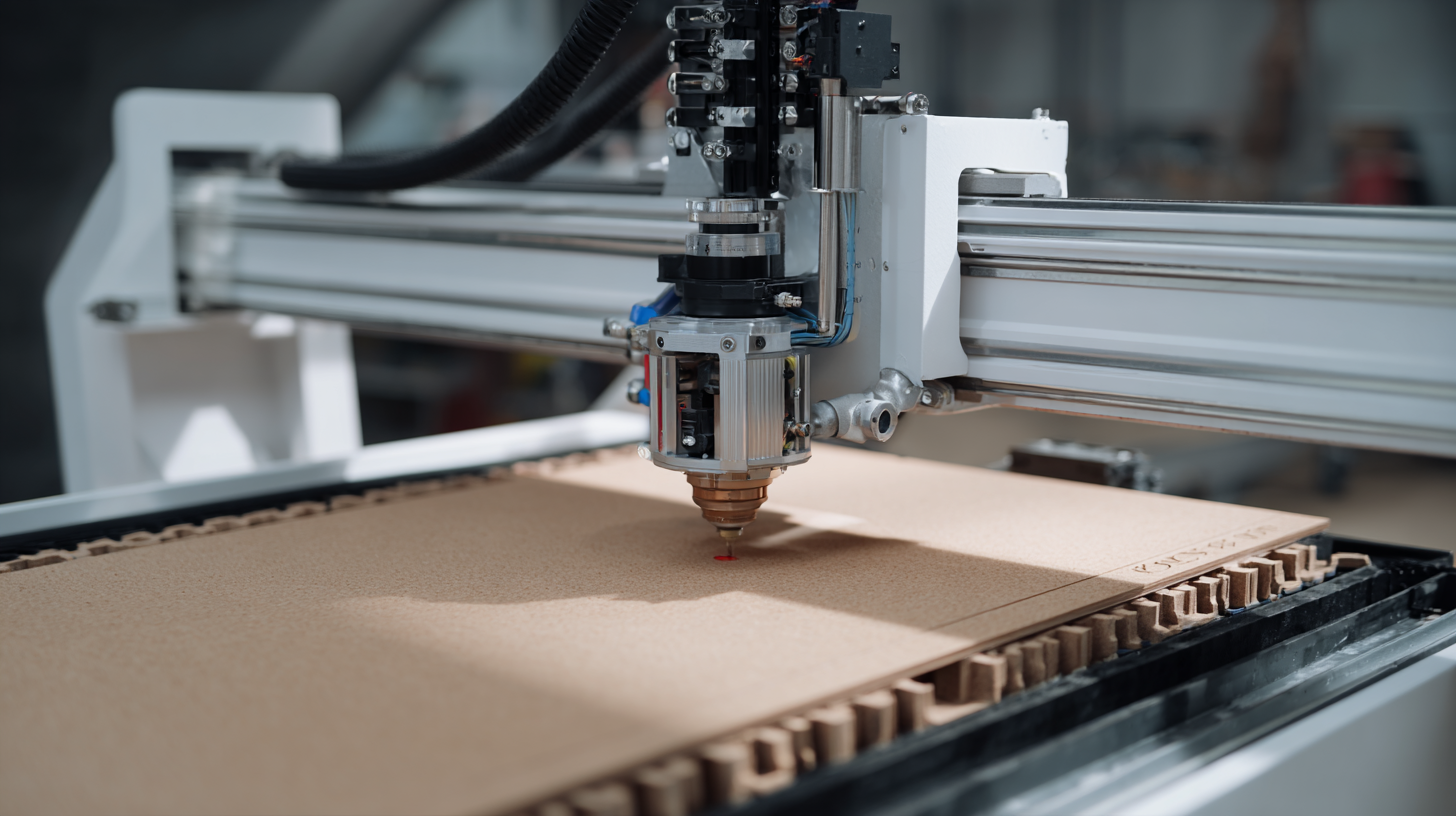
Sustainable Manufacturing Practices: How CNC Routers Enhance Eco-Friendly Production
CNC routers have emerged as a cornerstone of sustainable manufacturing practices, significantly enhancing eco-friendly production across various industries. According to a report by the International Journal of Advanced Manufacturing Technology, CNC routers can reduce material waste by up to 30% compared to traditional machining methods. This is primarily due to their precision and ability to optimize cutting paths, which minimizes unused material and contributes to more efficient resource utilization.
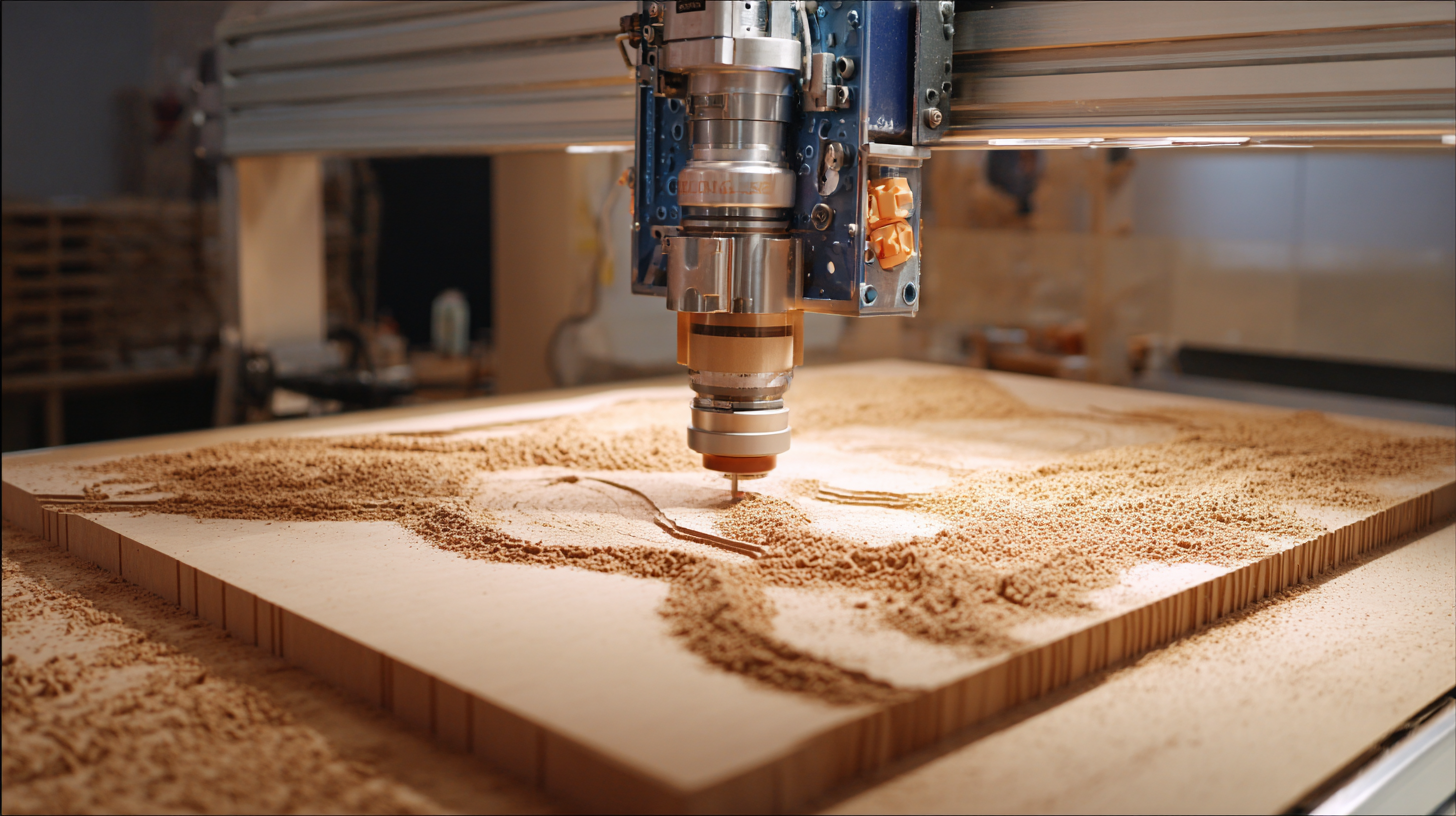
Moreover, the use of CNC routers can streamline the production process, allowing manufacturers to design complex pieces with less energy consumption. A study conducted by the U.S. Department of Energy highlights that advanced CNC technologies can decrease energy usage by approximately 25% during machining processes, reinforcing the role of these machines in promoting greener manufacturing. As industries increasingly prioritize sustainability, integrating CNC routers into production lines not only meets eco-friendly standards but also promotes the development of innovative, sustainable materials like reclaimed wood and recyclable composites, further enhancing the environmental impact of modern manufacturing.
Emerging Trends in CNC Router Design: Customization and Automation Features
The landscape of CNC router design is rapidly evolving, driven by the demand for customization and automation. Modern machines now feature advanced customization options, allowing users to tailor their CNC routers according to specific project needs. This adaptability not only enhances precision in crafting but also broadens the scope of applications—from intricate woodworking to complex prototypes in various industries. The integration of user-friendly interfaces and modular components empowers operators to easily modify their setups, optimizing for velocity or detail as required.
In addition to customization, automation features are becoming pivotal in the manufacturing process. Cutting-edge CNC routers are incorporating sophisticated software solutions that streamline production workflows, reduce manual input, and increase operational efficiency. These innovations include automated tool changers, real-time monitoring systems, and cloud-based data management, allowing for enhanced productivity and consistency in output. As industries embrace these emerging trends, the synergy of customization and automation will undoubtedly redefine crafting and manufacturing, paving the way for more innovative and efficient practices.
Exploring the Versatility of CNC Routers: Innovations in Crafting and Manufacturing
| Dimension | Description | Trend/Feature | Impact on Industry |
|---|---|---|---|
| Customization | Ability to tailor CNC routers for specific projects | Bespoke settings and configurations for various materials | Increased efficiency and waste reduction in manufacturing |
| Automation | Integration of automated systems for higher precision | Use of AI and machine learning to optimize cutting paths | Enhanced productivity and reduced human error |
| Materials | Capability to work with a wide range of materials | Adapting tools for wood, plastics, metals, and more | Broader application possibilities across industries |
| User Interface | Advanced interfaces for easier operation | Touchscreen controls and software integration | Lowered barrier to entry for new operators |
| Maintenance | Improved systems for tracking machinery health | Predictive maintenance using IoT technology | Reduced downtime and extended equipment lifespan |
Maximizing Material Utilization with CNC Routers: Cost Savings and Waste Reduction Insights
CNC routers have revolutionized the crafting and manufacturing industries by enabling maximum material utilization, leading to significant cost savings and waste reduction. By utilizing advanced software and precise engineering, these machines optimize cutting paths and minimize leftover material, ensuring that every piece of raw material is used efficiently. This not only reduces the overall cost of production but also lessens the environmental impact by decreasing waste generated from manufacturing processes.
Furthermore, the versatility of CNC routers allows for various materials, from wood to plastics and metals, to be precisely cut and shaped with minimal waste. Innovations in tooling and operational techniques enhance their ability to handle complex designs with intricate details, transforming how businesses think about material sourcing and sustainability. As companies strive for greener practices, investing in CNC technology is proving to be an intelligent approach—merging cost effectiveness with ecological responsibility.
Maximizing Material Utilization with CNC Routers
Related Posts
-

7 Best Table Top CNC Machines for Precision Crafting in 2023
-
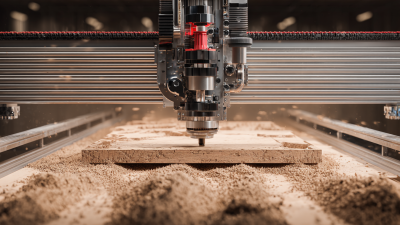
Exploring the Unique Features and Applications of Various CNC Router Machine Alternatives
-

Unlocking Creative Manufacturing with Best Desktop CNC Applications and How to Get Started
-
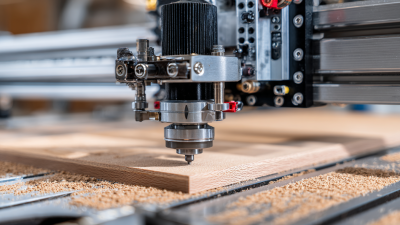
Unlocking Precision in Manufacturing with Best Desktop CNC Tutorials for Global Buyers
-
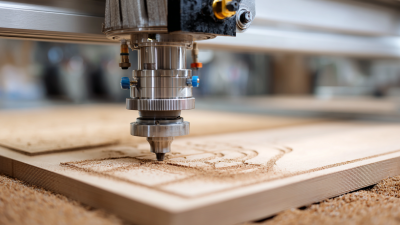
Exploring Examples of the Best CNC Wood Router Machines for Global Buyers
-
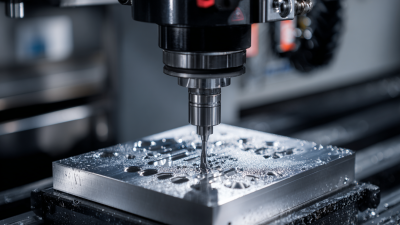
Navigating Global Trade Standards for Best Desktop CNC Machine Import and Export
Siemensstraße 13-15
47608 Geldern
NRW Deutschland
Mail: sale@atmmachinesolutions.com
Head office:
+49 (0) 2831 91021-20
Fax:
+49 (0) 2831 91021-99
SUPPORT and INFO
from 3 p.m. to 6 p.m:
+49 (0) 2831 91021-60
( please ring for a long time )
Monday to Friday
8.00 – 12.30
and 13.00 – 15.00
Visit / collection by appointment only!
➣ Sign up for our newsletter
Benefit from a 20% discount, don’t miss any events and always stay up to date.
To access the actual content, click on the button below. Please note that data will be passed on to third-party providers.
More information







